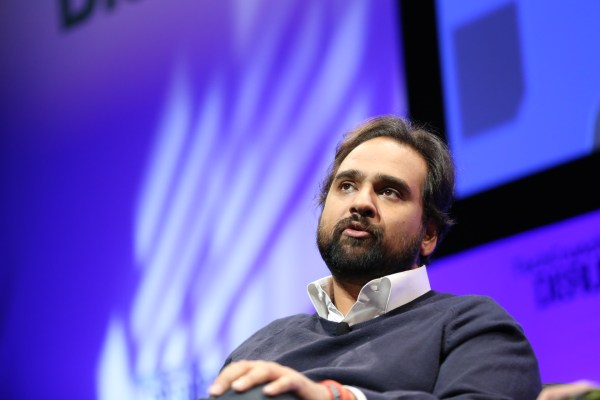After burning through $1 billion, Jawbone’s Hosain Rahman has raised $65 million more – TechCrunch - 4 minutes read

Not everyone gets a second chance in Silicon Valley. Entrepreneur Hosain Rahman has been given many more than that. Though his last company, Jawbone, which produced wireless speakers and Bluetooth earpieces, went kaput in 2017 after burning up $1 billion in venture funding over the course of ten years, Rahman has managed to raise $65.4 million for his new company. So shows a new SEC filing that, coincidentally or otherwise, was processed late yesterday while most of the world’s attention was focused on Uber’s IPO.
The company, Jawbone Health, isn’t brand new. According to reports of two years ago and Rahman’s LinkedIn bio, he began working in earnest on his newest endeavor when the original Jawbone was running on fumes in the summer of 2017.
In fact, according to LinkedIn, Jawbone Health now employs 51 people, including some who worked with Rahman previously. Among these is the new outfit’s VP of engineering, Jonathan Hummel, who’d been a senior engineering manager at Jawbone during the last two years of its life. Others are new to the organization because of its focus on healthcare. These include Yaniv Kerem, Jawbone Health’s VP of Informatics, whose last job was as an emergency medical physician with Kaiser Permanente.
Certainly, the company has a very different mission than even the wearable fitness trackers that Jawbone began making as a kind of Hail Mary pass, and whose failure signaled to some the end of the wearables industry — though it was really just the end of Jawbone.
As Rahman told reporter Kara Swisher last fall, what Jawbone Health is selling is a “personalized subscription service where we take all of this continuous health data about you and we combine that with a lot of machine intelligence . . .”
The idea is to prevent the avoidable diseases that wind up killing two-thirds of us owing to bad-decision making and plain-old inattention. “If you catch that stuff early and you change your behavior or whatnot, you can push out half of those deaths and save 70 percent of the cost,” he told her, adding that Jawbone Health is making its own devices, which will will come free with the service.
It sounds extremely practical. Still, one obvious concern for the new company is competition. Where Jawbone made attractive, wireless speakers ahead of many other companies whose products now litter our homes, Rahman is seemingly late to the party with Jawbone Health. There are already rings that track sleep activity and heart rate; bracelets that come with built-in accelerometers, heart rate sensors, and temperature sensors; and even textiles that unlock biometric insights.
That’s saying nothing of the Apple Watch, which has already put plenty of startups out of business.
Rahman says one of Jawbone Health’s biggest differentiators is that the product and service are “clinical grade.” That may be a selling point for some consumers, though we’d imagine most won’t really care. After all, humans don’t have the best track record when it comes to taking care of themselves.
Either way, the new funding, atop so much lost capital already, is sure to frustrate some founders who’ve been given fewer opportunities. It may also confuse others who’ve either worked with or funded Rahman in the past.
Then again, Rahman wouldn’t be the first founder to bounce back from failure, and he has plenty to prove. His new backers may well be counting on it.
According to the filing, Jawbone Health is backed by SignalFire and Refactor Capital in the Bay Area, and Polymath Ventures in Dubai. In his sit-down with Swisher, Rahman had also said that Meraas in Dubai is an investor. Indeed, he described it as the company’s “primary” investor.
We’ll have more on the company soon.